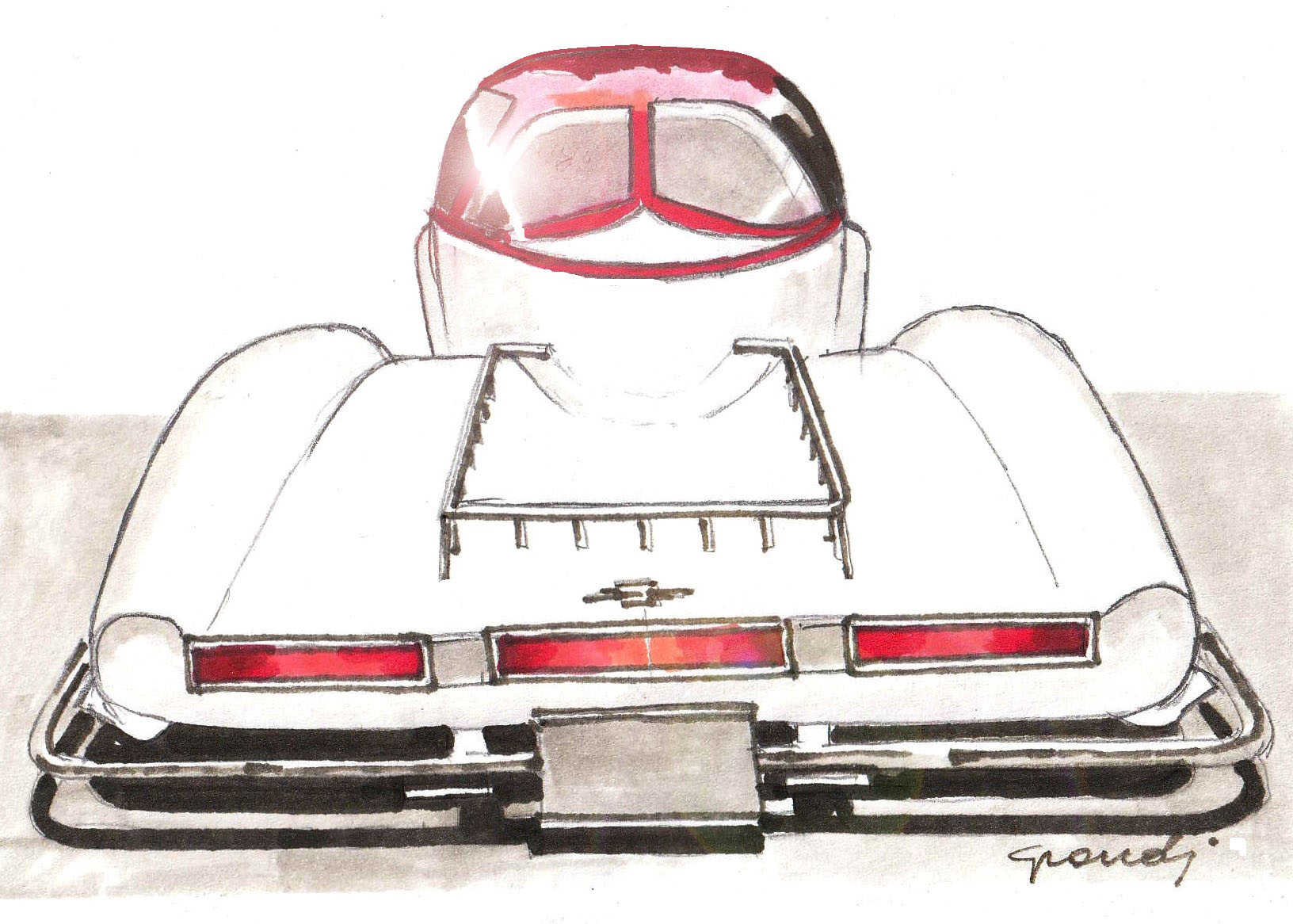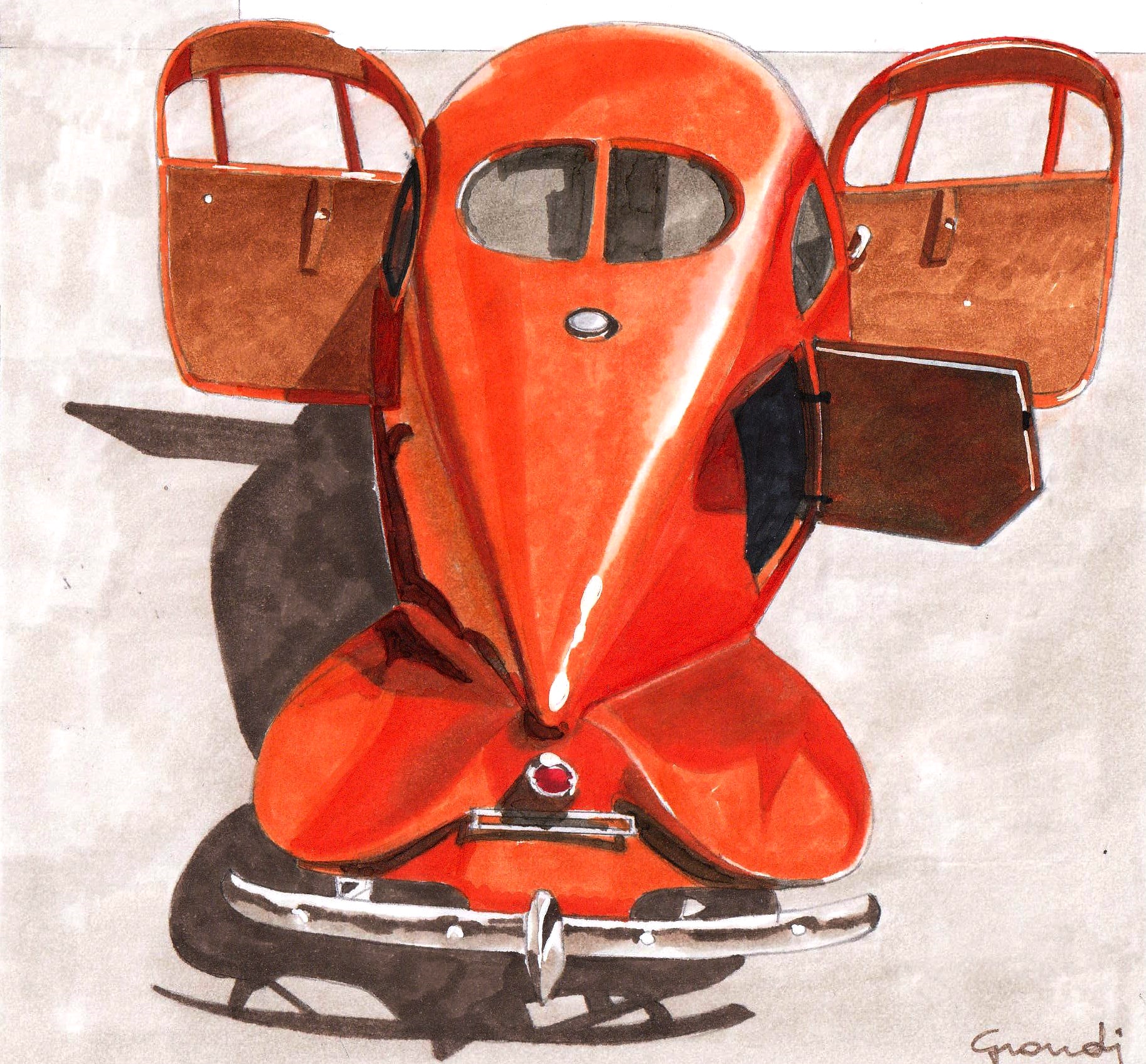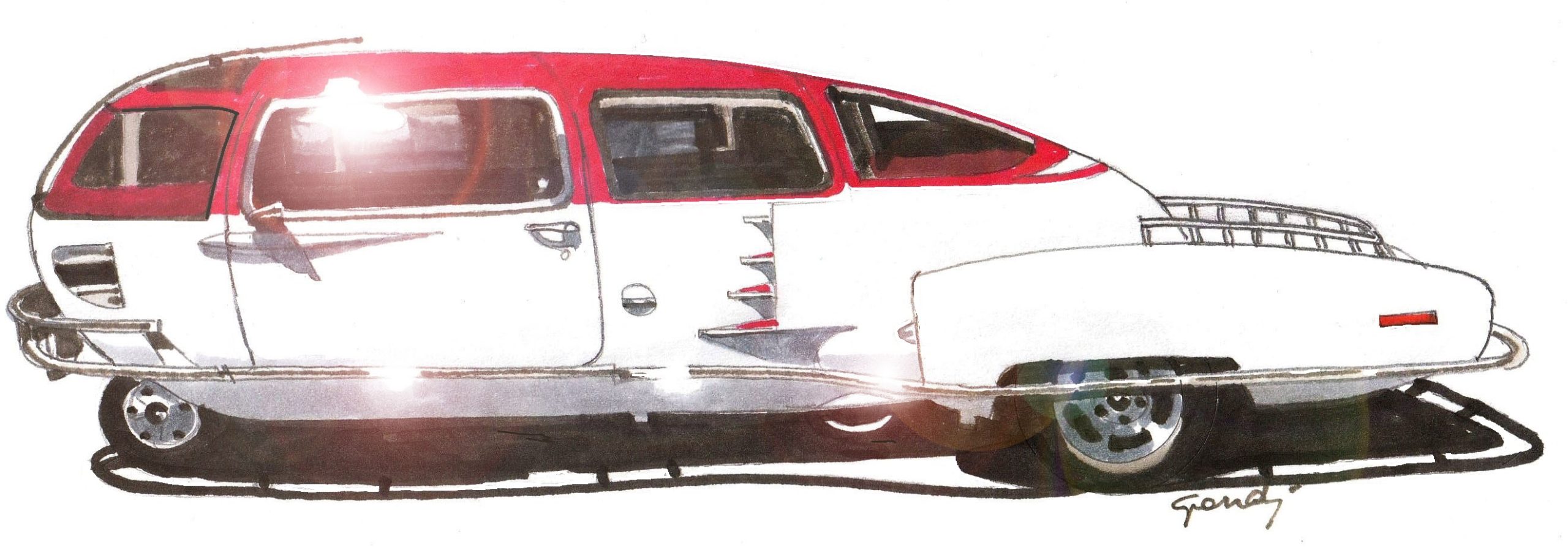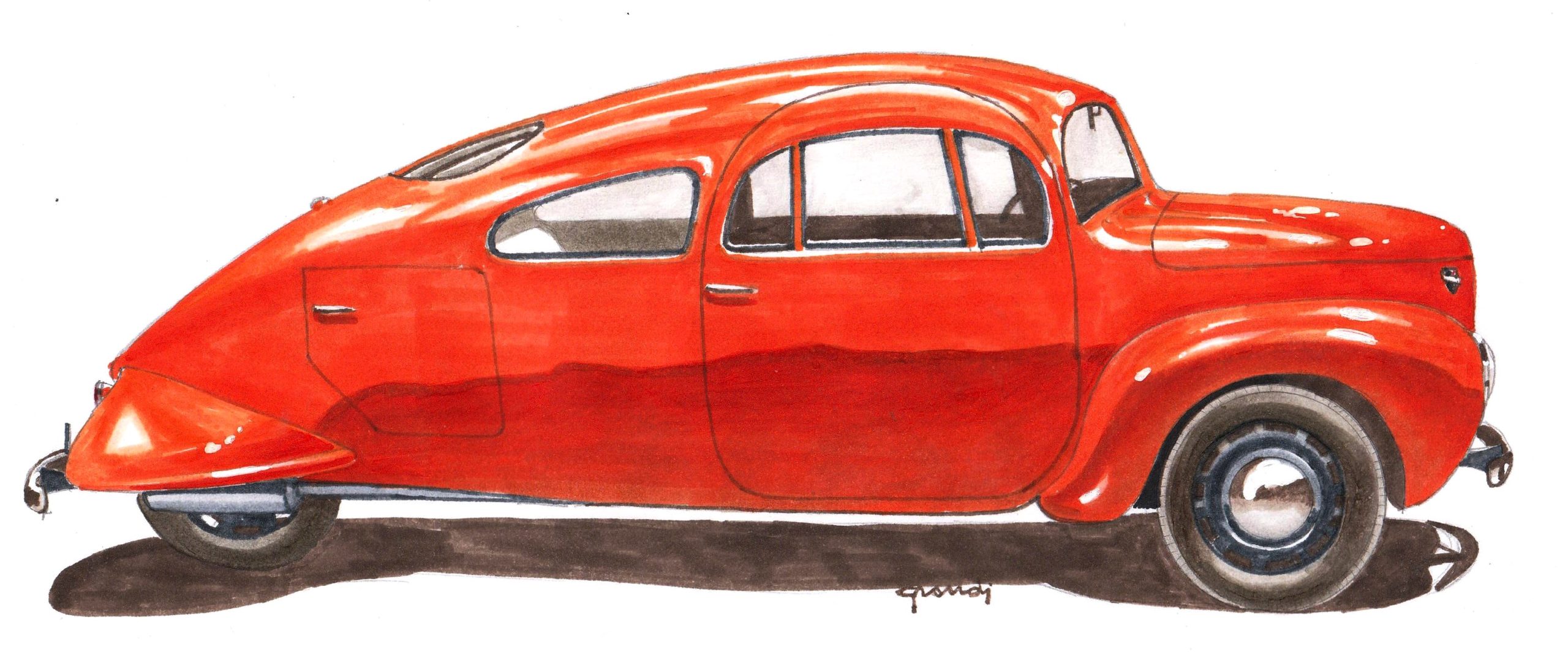Road plane
With the valuable support, depth of knowledge and illustrative talent of Prof. Massimo Grandi
Photo credit: Some images are taken from the book Asi Service "Quando le disegnava il vento" by Massimo Grandi
Paul Lewis, advertiser and inventor (with as many as 28 patents to his name), was a real believer in three-wheeled vehicles. His first such creation, which was unsuccessful, was called the Airomobile. Drawing important lessons from the failure of that first model, he decided he needed to make the concept more solid and glamorous, and thus came up with a new, far more esthetically appealing model. He abandoned the external headlamps, while overall the lines, still designed for maximum aerodynamic efficiency, were more carefully developed.

In spite of a vigorous promotional campaign, this project also failed, for two main reasons: the authorities decided that three wheels were not safe enough, and then the war broke out, making everything even more difficult. But Lewis was not a quitter, and in 1962 he founded the Highway Aircraft Corporation, in Lakewood, through which to revive his idea. This time, however, he reversed the arrangement of the wheels. Indeed, in order to overcome the issues previously encountered, he designed the new version with two wheels at the rear and a single twin-wheel unit at the front, rather like the kind you see on planes.

Among other things, this solution allowed the vehicle to do 180-degree turns — a truly unique feature! He produced five specimens, all still surviving according to available sources, fitting them with different types of engine, ranging from traditional piston engines to innovative units featuring a gas system that was far ahead of its time in terms of emissions. However, success remained hard to come by.

Even though the vehicle — it can’t really be called a car — was fascinating, resembling a spaceship from a 1950s science fiction movie, the experiment never took off. The problem, once again, was safety: the pair of wheels at the front presented the same risks previously encountered. And so, the whole idea remained a dream, great to look back on, but just a dream.
